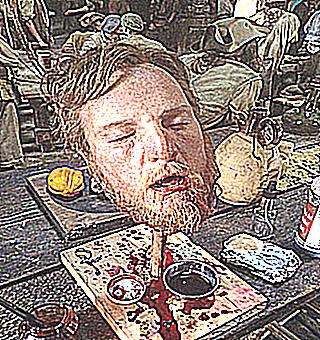Home >
Erectile Dysfunction >
Plaque on the head
Plaque on the head

The tizone glands are located in the male penis. They produce a lubricant that protects the head from chafing. The discharge has a specific smell and a thick consistency. If a guy does not follow the rules of hygiene, the lubricant mixed with dirt and drops of urine accumulates on the penis. But discharge of a milky shade does not always appear due to uncleanliness. They are sometimes a symptom of a serious medical condition.
The reasons for the white secret
Natural grease has a sour smell and looks like a greasy film that covers not only the head, but also part of the base. If the man is not worried about other symptoms, he should wash his penis twice a day with warm water and baby or antibacterial soap. Then the amount of discharge will decrease, and the unpleasant odor will disappear. It is advised to consult a urologist when it appears:
- burning during and after urination
- redness of the foreskin and head
- uncomfortable sensations during erection and intercourse
- swelling of the genital organ
Grease that looks like curd cheese indicates thrush. healthy men also have a fungal disease, but the immune system constantly suppresses the infection, preventing it from multiplying. The problem appears when the body's defenses are reduced. For example, after the flu or cold. A man can contract thrush through unprotected intercourse. Candida mushrooms need to be treated with special drugs, which are selected by a urologist. If the disease is started, the patient's head becomes less sensitive. Because of this, erection problems arise. The infection multiplies and gradually invades the urethra, causing pyolocystitis. The inside of the urethra becomes covered with purulent formations. They lead to a narrowing of the urinary tract. The disease is accompanied by severe and sharp pain. The fungus spreads to the kidneys, increasing the risk of pyelonephritis. The entire genitourinary system of the patient suffers. If a man leads a promiscuous sex life and rarely uses condoms, he should visit a venereologist or andrologist. Be sure to get tested to exclude:
- chlamydia
- syphilis
- gonorrhea
- genital herpes
One of the signs of sexually transmitted diseases can be a putrid smell, reminiscent of rotten fish or eggs. Small rashes on the head of the penis should be suspected. With genital herpes, the penis becomes covered with small bubbles, which open up on their own after a few days and turn into painful sores. The wounds do not heal for a long time, they may bleed periodically. Acne and sores are also common for syphilis, but they do not cause discomfort and disappear without treatment. In men, white discharge occurs with HIV and psoriasis. If an examination by a venereologist showed that the patient does not have sexually transmitted diseases, it is necessary to donate blood for sugar. Plaque on the penis may indicate diabetes.
Diagnostics and treatment
An examination by an andrologist or urologist consists of two parts:
- The doctor asks the patient about the symptoms, takes a history
- The specialist then visually examines the penis and takes a swab from the glans. It is not sick, but it can be a little unpleasant
If necessary, the doctor will prescribe a referral for a blood test. After receiving the results, treatment is selected. A man must follow all instructions and recommendations. During treatment, patients are advised to abstain from sex. You can not use folk and pharmaceutical remedies if there is no final diagnosis. Otherwise, the state of health only worsens, and the disease becomes chronic. While research is underway, you can flush your penis with decoctions of chamomile, string, or calendula. Herbs soothe itching and reduce discomfort. A man is advised to change his underwear daily, and clean underpants must be ironed with a hot iron. Infection and fungus are killed at high temperatures. The patient's well-being is improved by a special diet. Doctors recommend removing sweets, honey, mayonnaise and flavored yoghurts from the diet. Sugar creates favorable conditions for the growth of the fungus. Carbonated drinks and sweets, animal fat, semi-finished products and fried foods are prohibited. For a man, cereals, vegetable and fruit salads, dietary meat, cottage cheese, kefir and light soups are useful. The diet is suitable for patients with psoriasis, dysbiosis, diabetes mellitus and thrush. It restores intestinal microflora, improves immunity and improves skin condition. At home, you can use "Tetracycline ointment", necessarily one percent, and "Malavit". The drugs reduce inflammation, swelling and discomfort. But they do not remove the cause of the cheesy discharge, so you cannot do without consulting a doctor.



























